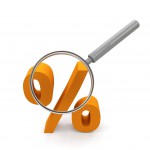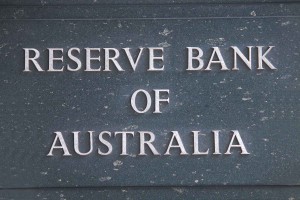With increasing sentiment of a positive economic outlook, the Reserve Bank is likely to sit on the sidelines at tomorrow’s board meeting (Tuesday, 7th March) and impose no cash rate change for March, according to finder.com.au.
finder.com.au’s RBA cash rate survey, the largest of its kind in Australia, shows all 38 experts and economists believe the cash rate will hold at 1.5% for March 2017.
However, murmurs of a cash rate rise are gaining momentum, with 68% of panelists surveyed on this question (23 of 34) believing the next RBA cash rate move will be up, wh
ich has risen from 58% panelists last month.
But we’re unlikely to see a rate increase until at least May this year.
Two experts predict May or July as the likely months this will occur, while the remainder expect a rate rise between August and November.
The majority (68%), however, do not expect a rate rise until 2018 or beyond.
Of those who are expecting a rate cut, most of this group (5, 50%) predict the cash rate to bottom-out at 1.25%, with 40% predict a further cut to 1.00%.
Following positive GDP figures released this week, most economists had a positive future outlook, with 26% (8) saying the economy was stable, and a further 32% (10) citing the economy was “moving in the right direction.”
However, 42% voiced some concern with 23% (7) saying there are difficult times ahead.
While economists expect minimal cash rate movement this year, the vast majority of panelists (90%) believe further out-of-cycle rate hikes will take place in the near future.
Graham Cooke, Insights Manager, at finder.com.au says future out-of-cycle rate hikes means first home buyers need to practice their due diligence.
“With banks likely to lift mortgage rates out-of-cycle, the onus is on first home buyers to factor in potential rate rises to their budgets. Generally, mortgage holders should account for 2-3% on top of their current repayments to avoid rate shock,” he says.
New research shows the value gap between first home buyer and non-first home buyer loans has peaked to record highs.
Non-first home buyer loans were 20% ahead of first home buyer loans at the end of 2016, which is nearly double the gap in 2014 (11%).
The majority of experts surveyed on this topic (81%, 21) expect the gap between first home buyer and non-first home buyer loans will continue to widen.
Mr Cooke says this trend could push first home buyers to outer fringe suburbs in an effort to find more affordable housing.
“This trend indicates that the market is running away from first-time buyers, as many young couples may be forced to look to the city outskirts to purchase their first home,” he says.
Here’s what our experts had to say:
Shane Oliver, AMP Capital (Hold): “The RBA has a high hurdle to cutting again and not much has really changed since the last meeting.”
Alison Booth, Australian National University (Hold): “Combination of economic fundamentals and housing bubble fears of the RBA will lead it to keep rates fixed.”
John Hewson, Australian National University (Hold): “No clear argument to lower further. Too exposed to consider an increase.”
Darryl Gobbett, Baillieu Holst Ltd (Hold): “Quite apparent RBA now is more concerned at future risks of increased household debt from lower rates than any, likely small, benefit to broader economic activity of lower rates. Also now taking a longer term view of meeting the 2-3% inflation target.”
Peter Munckton, Bank of Queensland (Hold): “Rates are at the right level.”
Richard Robinson, BIS Oxford Economics (Hold): “Underlying economic growth is weak, and although the dollar has appreciated recently, which would not please the RBA, there is still too much exuberance in the housing market. So they can’t cut rates.”
Paul Dales, Capital Economics (Hold): “The RBAs financial stability concerns related to the hot housing market and high level of household debt will prevent it from cutting interest rates to boost underlying inflation and economic growth.”
Savanth Sebastian, CommSec (Hold): “RBA comfortably on the interest rate sidelines. Subdued inflation ensures rates can stay low for a longer period. However further rate cuts are unlikely given economy is showing signs of improvement.”
Dr Andrew Wilson, Domain Group (Hold): “Positive December quarter GDP numbers.”
Jordan, Eliseo (Hold): “A solid rebound in GDP figures and the RBA’s strongly expressed reticence to ease further will see the bank sit tight for the foreseeable future.”
Scott Morgan, Greater Bank (Hold): “With the latest economic data showing a sound economy and revised growth forecasts, there’s no impetus to change rates at the moment. Global drivers will remain an influence on future RBA rate decisions. At the moment I think the next move is up.”
Mark Brimble, Griffith University (Hold): “Economics fundamentals show some improvement, however impact is not widespread. At the same time market uncertainty and sensitivity is very high due to a range of economics, social and political issues that continue to impact with no end in site.”
Shane Garrett, Housing Industry Association (Hold): “No pressing need for intervention from the RBA with the current position of the exchange rate, inflation and economic growth.”
Alex Joiner, IFM Investors (Hold): “No material shift in data or sentiment since February.”
Robert Montgomery, Infrastructure Partnerships Australia (Hold): “The RBA will keep the cash rate steady. Economic growth and inflation figures will have to slide further before another cut to the cash rate is triggered.”
Leanne Pilkington, Laing+Simmons (Hold): “The RBA has been relatively open about its reticence to adjust the cash rate in the near term in case it jeopardises stability through people borrowing more in pursuit of high priced property. The softness evident in recent wage data lends itself to a hold position. We expect rate rises are quite a way off.”
Nicholas Gruen, Lateral Economics (Hold): “Because they have convinced themselves that this is the best way to minimise the risks to financial stability – though I disagree with them.”
Lynne Jordan, Liberty (Hold): “Like last month, the RBA will keep the cash rate on hold in March. However, despite summer being behind us, the property market appears to be hotting up, with growth in house prices showing no sign of slowing. Clearance rates are sitting at around 80% across Sydney and Melbourne and housing credit to investors continues to in
Matthew Tiller, LJ Hooker (Hold): “A stronger than expected GDP result combined with the ongoing strength of the Sydney and Melbourne housing markets should see the RBA hold rates steady in the short term.”
Stephen Koukoulas, Market Economics (Hold): “The RBA is more concerned about a few pockets of rising house prices than dealing with record low inflation, record low wages growth and a generally soft economy. It should cut but won’t.”
John Caelli, ME Treasurer (Hold): “Cutting rates has the potential to increase house prices, which the RBA is closely watching.”
Michael Yardney, Metropole Property Strategists (Hold): “The latest stats show our economy is bouncing back, so there is no reason for the Reserve Bank to lower rates, especially as it is concerned about the hot property markets in Sydney and Melbourne.”
Mark Crosby, Monash University (Hold): “No domestic or international case for raising until after the Fed raises. Inflation is slightly below target, but has risen slightly so no case for a cut.”
Emily Dabbs, Moody’s Analytics (Hold): “The RBA Governor has indicated that rising household debt and strong house price growth is a concern for the bank, curtailing further rate cuts despite inflation below its target band.”
Jessica Darnbrough, Mortgage Choice (Hold): “I think the Reserve Bank is keen to see what happens in both the domestic and global markets before making any adjustments to the current monetary policy setting. We know that Reserve Bank governor Philip Lowe believes lower rates could cause household debt to rise further, which is something he wants to avoid. As such, we are unlikely to see the RBA trim the cash rate at this meeting.”
Christopher Schade, MyState Bank (Hold): “The hurdle for another cut is high. While inflation remains subdued, and the outlook for economic growth over the next year couple of years slightly below trend, interest rate settings in Australia are very accommodative and remain appropriate at their current level.”
Saul Eslake (Hold): “Data released since the last meeting would not have given the Reserve Bank any reason to think the economy is in need of further monetary policy stimulus (indeed the December quarter national accounts will probably prompt some small upward revisions to their GDP forecasts when next released in May). And comments by Phil Lowe over the past month clearly indicate that he has little appetite for further reductions in interest rates, in the absence of a significant negative economic shock.”
Alan Oster, Nab (Hold): “RBA happy to sit and watch.”
Jonathan Chancellor, Property Observer (Hold): “There are few reasons to do otherwise.”
Matthew Peter, QIC (Hold): “The RBA will be forced to remain on the sidelines for a least another year – can’t cut (for fear of stoking the housing market bubble), can’t hike (due to weak growth and inflation).”
Noel Whittaker, QUT (Hold): “No reason to move.”
Christine Williams, Smarter Property Investing (Hold): “Unemployment has only slightly reduced by .01 %. The banks are reducing Credit Card interest rates, however they have increased their late fee charge, so there ROI will remain the same.”
Janu Chan, St.George Banking Group (Hold): “The RBA believes the economy will improve enough for inflation to head back towards target. Recent rhetoric has been very positive, and the pickup in housing indicators will also prevent the RBA from lowering rates any further.”
Steven Milch, Suncorp Group (Hold): “Solid growth is offsetting low inflation.”
Clement Allan Tisdell, The University of Queensland (Hold): “[The RBA will hold] in order to maintain momentum in the non-mining sector.”
Nicki Hutley, Urbis (Hold): “The economy has momentum and the housing market is frothy.”
Peter Haller, (Hold): “Given the strength of the GDP print, there is no basis for a rate cut.’




No comments:
Post a Comment